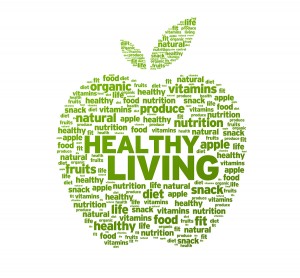By Christie Korth
 Ever wonder how food plays a role in your digestion? Sure, we know food is supposed to give us energy and help us to feel good. But what happens when food makes us feel terrible? Particularly if you have Crohn’s, Coltis, Ulcers, Irritable Bowel Syndrome (IBS) or Celiac Disease- you will want to pay attention here. If you think you don’t have any food intolerance’s? You may be very surprised to find that you do!
Ever wonder how food plays a role in your digestion? Sure, we know food is supposed to give us energy and help us to feel good. But what happens when food makes us feel terrible? Particularly if you have Crohn’s, Coltis, Ulcers, Irritable Bowel Syndrome (IBS) or Celiac Disease- you will want to pay attention here. If you think you don’t have any food intolerance’s? You may be very surprised to find that you do!
In my own case- I was in disbelief when it came to food intolerance. When I was sick with my own case of Crohn’s, I didn’t really love food all that much, since it didn’t seem to love me back. But on the rare occasion when I was hungry, all I could think of was bread. It seemed to “coat” and soothe my stomach. So for the longest time, I thought glutenous foods were “helpful” for my angry, old belly. As it turned out, I am severely intolerant. When I eat gluten, not only does my Crohn’s flare, but I get depressed, have anxiety and brain-fog. If I really over do it, I will get acne and eczema, which I always joke are my “cheating indicators”. Someone can automatically tell if I let loose and gave in to a buttery NY bagel with in a day or so, as my complexion suffers tremendously between 1-3 days after consuption.
At some point or another, you may have pinpointed certain foods that set off your digestive symptoms as I did. Perhaps your doctor recommended that you omit dairy, gluten, sugar, fried, or spicy ingredients from your diet to see how you feel. By trial and error, you may have even noticed that some foods aggravate your IBD. So, what is food intolerance exactly and how do you know if you have it?
Delayed Hypersensitivity—IgG- Food Intolerance
 A food intolerance reaction is known as an IgG antibody reaction. This is the type of immune system response I focus on because of its prevalence in those with IBD. IgG reactions differ from a typical food allergy by not producing the immediate reaction that someone with an allergy may experience. Although they are not immediately life-threatening like their IgE counterparts (true food allergy), these IgG reactions to food slowly cause harm by stimulating the body to produce inflammatory chemicals called cytokines. Cytokines can affect the small and large intestine, wreaking havoc on the digestive system and can damage to various parts of the intestines. When the intestines become inflamed, the passageways begin to narrow and thicken, causing villi damage and malabsorption. All these symptoms contribute to IBD flare-ups.
A food intolerance reaction is known as an IgG antibody reaction. This is the type of immune system response I focus on because of its prevalence in those with IBD. IgG reactions differ from a typical food allergy by not producing the immediate reaction that someone with an allergy may experience. Although they are not immediately life-threatening like their IgE counterparts (true food allergy), these IgG reactions to food slowly cause harm by stimulating the body to produce inflammatory chemicals called cytokines. Cytokines can affect the small and large intestine, wreaking havoc on the digestive system and can damage to various parts of the intestines. When the intestines become inflamed, the passageways begin to narrow and thicken, causing villi damage and malabsorption. All these symptoms contribute to IBD flare-ups.
How can you pinpoint food intolerance? Consult a professional or keep a detailed food diary to figure it out. IgG sensitivities can be tricky to recognize, as they are delayed hypersensitivity reactions that may not show up for six to seventy-two hours after consumption. In other words, you can eat a piece of bread on Monday but not display a reaction until Wednesday. How would you know that the symptoms were caused by something you had ingested days ago? And therein lies the problem: Most people don’t make the correlation. This is why a food diary and a nutritionist can come in handy. Many of my clients over these years are shocked when they figure out what is truly setting of their symptoms!
– Christie Korth is a Crohn’s disease survivor, author, certified health coach and holistic nutritionist who found her way to health and wellness after nearly succumbing to a severe case of Crohn’s disease. After harnessing the power of nutrition and gaining her health back, she then went on to be the founder and director of Happy & Healthy Wellness Counseling based just outside of NYC. She studied at the Institute for Integrative Nutrition, Columbia University and the Clayton College of Natural Health and is a certified holistic health practitioner with the American Association of Drugless Practitioners. Christie is the Corporate Nutritionist for Brain Balance Achievement Centers, where she designs the nutrition protocol for franchises across the country. Christie is a nutrition expert for Dr. Oz’s Sharecare.com and frequently contributes nutrition articles to Long Island Parent Magazine. Christie is he author of The IBD Healing Plan and Recipe Book: A Guide to Releive Crohn’s and Colitis with Whole Foods. Christie lives in New York with her son, her husband, and her cat.
